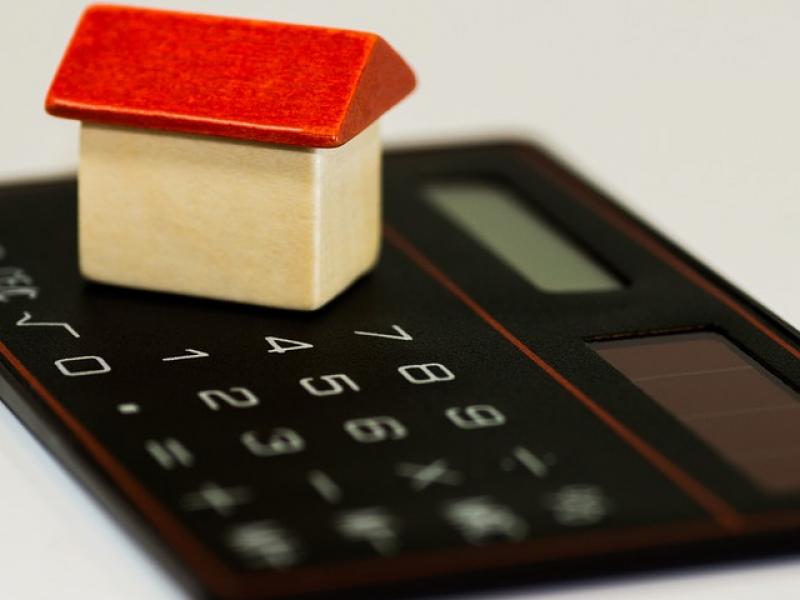
The consumer price index rose by 0.3% in February 2021, indicating that after a long period of Corona, prices began to rise, with inflation already estimated to increase by approximately 201%. . Significant price decreases were recorded in fresh vegetables - 1.9% and in footwear - 1.7%.
Since the beginning of the year, the consumer price index has risen by 0.2% and in the last 12 months (February 2021 compared to February 2020), the consumer price index remains unchanged, after a negative index throughout 2020.
According to the CBS Housing Price Index, which is published together with the Consumer Price Index (but is not part of it), in December 2020-January 2021, housing prices climbed by 0.9% compared to the previous two months (November-December 2020). Annual rate of 4.3% in apartment prices compared to the corresponding period last year (December 2019-January 2020).
Segmented by district in December-January, price increases were found in all areas: North 1.6%, Tel Aviv 1.3%, Haifa 1.1%, South 0.8%, Jerusalem and Central 0.3%, respectively. The same is true for segmentation by district compared to the corresponding period last year: North 6.0%, Tel Aviv 5.2%, Central 3.5%, South 3.4%, Jerusalem 3.2% and Haifa 1.7%.
In the price index of new dwellings, it was found that their prices increased in December 2020 - January 2021 compared with November-December 2020 by 1.2%, thus completing an increase of 3.3% compared to the corresponding period last year. The percentage of transactions made with government support is 30.6%, compared to 31.5% in the previous period.
In each of the last three months, the Central Bureau of Statistics reported a 0.9% increase in the housing price index. In an annual summary (January 2020-January 2021), this index rose by 4.9%, but this is an optimistic and misleading figure: in the last three months, the housing price index has been rising at a fairly stable rate of more than 10% per year.
Equally worrying is the rate of increase in new apartment prices, which rose by 1.2%. The price index of new dwellings has risen in recent years at a moderate pace relative to the general index and the average second-hand dwelling price, due to the effect of the government program "price per occupant", and also in the last three months the new dwelling index lags 0.8% behind the general index.
But the sharp rise in the new housing index over the past month shows that the program's impact on housing prices is fading. The rate of subsidized apartments in the new housing market remains stable, and constitutes about 31%. But the rise in the prices of new dwellings in the free market seems to have neutralized the moderating effect of "price per occupant" dwellings.
The resurgence of the sharp rise in housing prices, at an annual rate of more than 10%, is not currently provoking widespread protest, perhaps because of the coronation and perhaps because some of the main victims, young families, have won or hope to receive subsidized housing soon under one of the government plans. . The benefits offered by the follow-up plans initiated by Minister of Housing Yaakov Litzman and Minister of Finance Israel Katz are greatly reduced and do not guarantee besieged families hoping for an affordable apartment in the central area.
The main force driving the rise in apartment prices is the low interest rate that increases the purchasing power of the public and pushes many to purchase apartments in an attempt to achieve a better return on their investment.
The government and the Bank of Israel recently added fuel to the fire of apartment prices: in July, the heaviness of purchase tax on investors was abolished, and in early 2020 the Bank of Israel decided to ease the restriction on a relatively cheap mortgage at prime interest rates. On the other hand, the state and local authorities stopped working to increase the supply of apartments: the government almost stopped signing roof agreements for huge investments in new neighborhoods and housing complexes, local authorities reduced building permits, in some cases due to the corona crisis, and in other cases due to economic viability or mismanagement.
The corona had almost no effect on the pace of construction, as the construction industry was released from closure restrictions, but contractors encountered an acute shortage of land for construction, after the Israel Land Authority ran into an administrative crisis and reduced the pace of land marketing. The authority, which manages the lands held by the state and the Jewish National Fund, is the main source of land for construction.
Another source could have been urban renewal: the demolition of old quarters and more modern and dense construction in the vacant areas. But even these sweeping plans are stuck and the authority set up to advance the issue is a depleted body and lacks the means incapable of fulfilling its mission.
The last government has given up on significant moves in advance to tackle the housing challenge. The moderating impact of the dying “price per occupant” program and tackling the plague have helped push the evolving housing crisis to the bottom of national priorities. It is doubtful whether the next government will be able to continue to ignore the ticking bomb. .
Articles Archive
Top Categories
ABOUT IFI TODAY

Lorem ipsum dolor sit amet, consectetur adipisicing elit, sed do eiusmod tempor incididunt ut labore et dolore magna aliqua. Ut enim ad minim veniam, quis nostrud exercitation ullamco laboris nisi ut aliquip ex ea commodo consequat. Duis aute irure dolor in reprehenderit in voluptate velit esse cillum


Comments